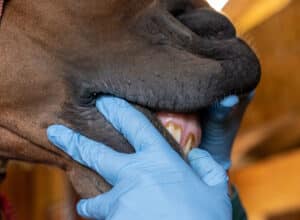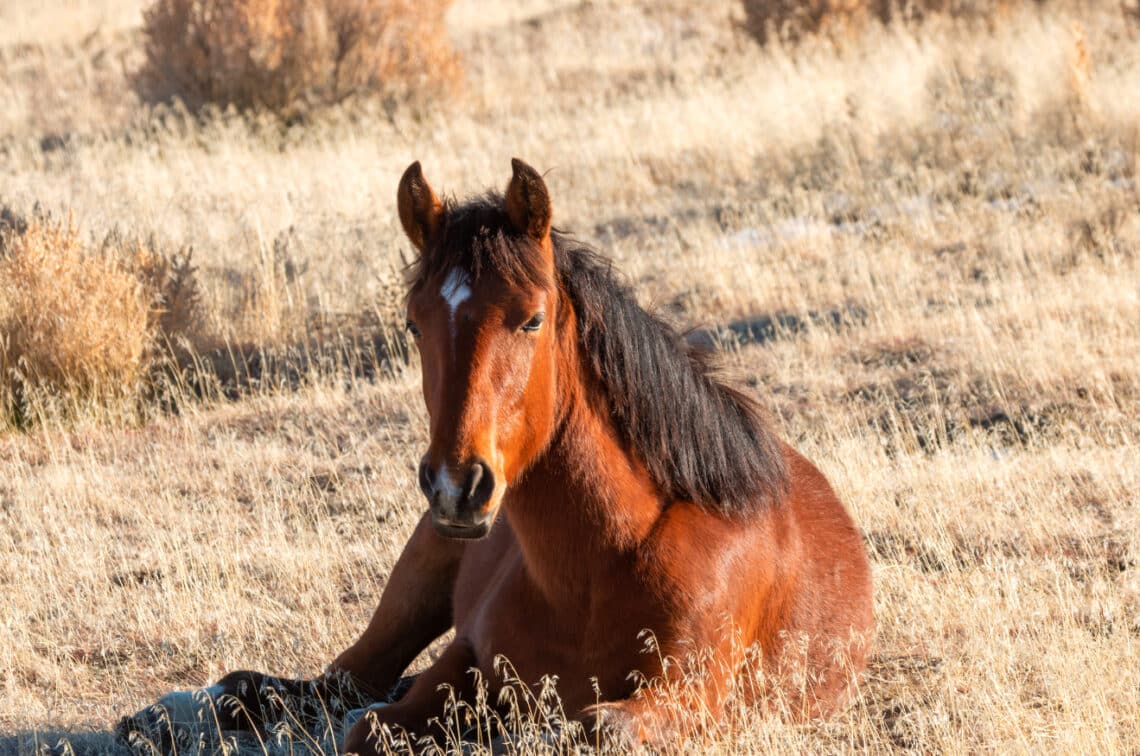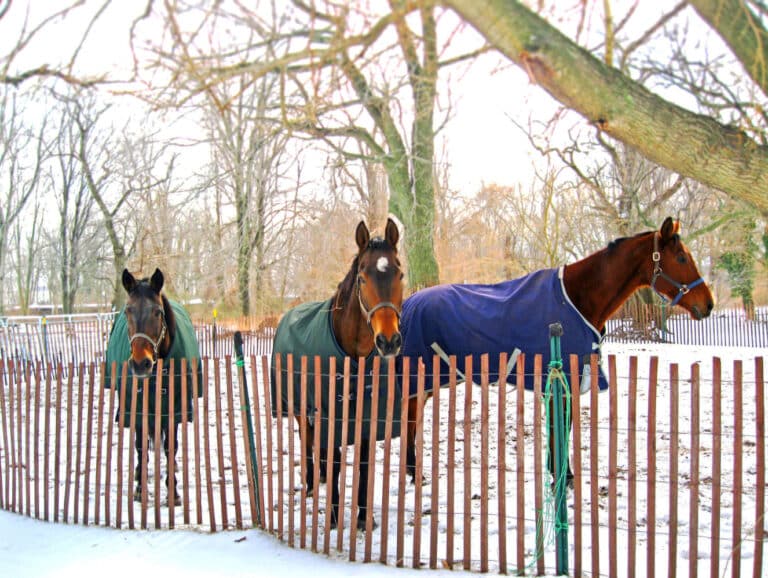Aged horses can be a challenge to feed correctly, particularly during winter. Equine nutritionist LEISA HOFSTETTER has some suggestions.
Often you will notice a loss of condition as your horse gets older, or starts to lose the functionality of their teeth – and frequently these two issues go hand in hand. While there may be the need for a more intensive feed regime, it is not impossible to keep the aged horse well-fed over winter with the right energy and nutrient intake.
There are several factors to consider here, such as whether your horse’s teeth are in good order, and whether the horse needs increased calories and/or nutrients to keep warm, or to counteract the changing nutrient composition of grasses in the colder months.
Age related weight loss
The general consensus is that there is a tendency for horses to lose weight as they age, despite eating the same diet they did well on as younger horses. Contrary to popular belief, and provided they have healthy teeth, this is not due to a decrease in their ability to digest feeds. Studies have shown that aged horses with healthy, functioning teeth have similar rates of digestive ability with high fibre, fat and fibre, and cereal diets as do younger adult horses with good dentition.
So why do horses seem to lose weight as they get older? The answer may be in their body composition. Horses tend to lose muscle mass as they age, even if they are still actively using muscles. Staying active can certainly help retain muscle mass, but there will most likely still be a slight decline as your horse moves on in years.
Dental health
Another contributing factor is that older horses (or even younger adult horses) with poor teeth or lack of teeth can lose weight quite quickly. This is because digestion essentially begins with the mouth, or more particularly, with chewing. Unlike dogs and humans, horses do not salivate when they see food. Instead, saliva is released in the mouth in response to chewing. Horses who have fewer or no teeth may produce less saliva than those with all their teeth. This can lead to an increased risk of stomach ulcers because saliva is a natural buffer for stomach acid, which is being produced continuously.

Chewing is also important for the later stage of digestion which occurs in the large intestine with the help of a diverse range of microflora. The microflora digest the fibre in feed to provide energy and other nutrients for the horse. It is because of the microflora that a horse can readily digest forages like grass, while humans can’t.
In order to digest the fibre in feed efficiently, the microflora need a good surface area-to-volume ratio. The higher the surface area, the more microflora can colonise on pieces of chewed fibre, and the more energy and nutrients the horse will gain from the feed. So, if a horse is having trouble chewing properly, the feed provided to the intestinal microflora may have a lower surface area-to-volume ratio, and digestion efficiency is therefore reduced, meaning less energy and nutrients for the horse.
Reduced digestive efficiency
To combat the reduced digestive efficiency associated with improperly chewed food, it may help to feed pre-cut forages such as chaff or hay cubes. These should be fed more frequently, around two to three times per day, and in smaller portions. In addition, fresh forages such as grass are chewed more easily than dried forages. It may help the toothless or poorly-toothed aged horse to maintain weight if they have 24/7 access to fresh grass.
A complete feed designed for older horses may help too, as these are often processed to be able to be eaten with minimal chewing. Aged horses may also benefit from feeds which contain around 4% to 7% fat and 12% to 14% protein. High sugar and/or high starch feeds should be reduced as there is a tendency for horses to be more susceptible to insulin resistance as they age, which can lead to laminitis and other health problems.
Winter poses other challenges in regards to maintaining a horse’s body condition. With this season comes colder weather. Aged horses have more difficulty regulating their body temperature than younger adult horses, so it is important to reduce their exposure to temperature extremes.
Colder winter weather can increase any horse’s energy requirements, as the body expends energy to create heat and keep warm. In terms of digestion, fibre tends to produce the most heat, while fat metabolism also produces considerable heat. This is another benefit of a high-fibre diet, as well as the reasoning behind including up to 7% fat in an aged horse’s diet. However, care should be taken when feeding fats to a horse that has a reduced feed intake due to quidding their food (likely caused by improper chewing). In this instance, a diet proportionally high in fat can result in hyperlipaemia, or fatty liver, a condition in which the liver is not able to properly process fat, leading to a complication that presents itself similarly to colic.
Seasonal grasses
Another potential problem in feeding any horse during winter arises in regions where warm season grasses are abundant. In these locations, the majority of pasture grasses grow fast in the warmer months, but their growth slows right down as temperatures cool. Often this follows the mature seeding stage of warm season grasses, which may start to die off or become brown and dry like hay. Additionally, mature grasses that have finished seeding are very likely to be high in lignin, a type of vegetative fibre that is not easily digestible, even for the microflora in the horse’s large intestine. This means your horse may not do as well on mature grass compared to less mature grass, and unfortunately this is right around the time when the temperature starts to get colder and your horse needs more energy to keep warm!

The importance of B6
Also important to keep in mind is that during winter pastures tend to become overgrazed because the growth rate is slower than the grazing rate. Overgrazed pasture may have significantly lower amounts of certain vitamins, such as B6. This particular vitamin is involved in the metabolism of fats, proteins and carbohydrates. A Vitamin B6 deficiency can result in a reduced capacity to metabolise these energy sources, which may decrease your horse’s ability to maintain weight. Talk to your equine nutritionist about feeding a Vitamin B6 supplement – brewer’s yeast is an excellent option.
Due to the many and varied contributing factors affecting your aged horse’s ability to maintain good condition (the functionality of their teeth; the ambient temperatures; the maturity of grasses in your pasture and whether or not they are overgrazed), there is no one right way to feed them. Armed with the information in this article, you will hopefully now be able to make more informed decisions regarding feeding frequency, calorie type and nutrient composition of your horse’s diet. Your equine nutritionist would be happy to help you choose the right feeds with the proper balance for your particular horse.
Leisa Hofstetter is an equine nutritionist offering ration analysis, designer diets and customised mineral supplements. She can be found at Hof Equine, or email hofequine@gmail.com.



